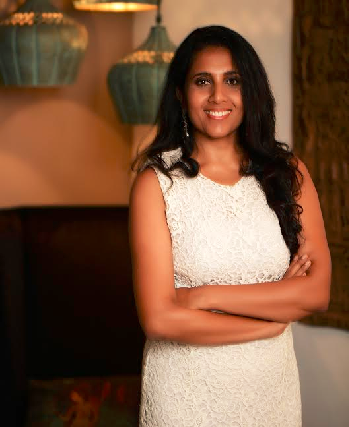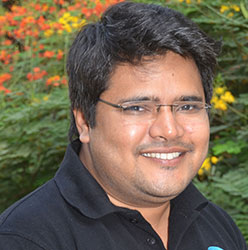Union Budget 2017 is just round the corner and all eyes are set on what schemes the government would announce in order to relieve the pain of demonetization. Today, we share pre-budget quotes from entrepreneurs and what are their expectations from the budget that would be announced on 1st February 2017.
Bhavin Turakhia, Co-founder and CEO of Directi

2016 saw a slew of announcements made by the government. With the goal of putting our country on the path towards a cashless economy, the Union Budget 2017~18 should include definitive SOPs and tax rebates to encourage and boost e-payments. Moreover, to achieve the goal of financial inclusion, the government should also rationalize indirect taxes and charges levied with respect to digital payment transactions, and further incentivize companies operating within this space. To adapt to the need of time, government should also rationalize income tax provisions including provisions related to employee tax benefits such that payments/ documents in the digital medium are treated at par with physical instruments.
As a natural corollary to the demonetisation process, the time is ripe to increase the tax exemption limit and also the corporate tax limits. Steps should also be taken to help startups tide over its immediate effects. Furthermore, with the increase in cash flow within banks, advanced technological infrastructure will help facilitate seamless transactions and improve the overall banking system as we enter into the new financial year.
A startup hub, India is currently home to the third largest number of technology driven startups in the world. The previous year witnessed multiple markdowns in the country’s startup ecosystem and, therefore, to propel this forward, the PM’s flagship ‘Startup India’ project should receive an impetus in the upcoming budget.
Suchi Mukherjee, CEO & Founder LimeRoad

In general, tax slabs should be adjusted in a way that does not reduce the number of people covered in the tax net, but reduces the tax liability of individuals in order to provide them more disposable income that would help to increase the consumption in the country. To push digital economy, I wish to see cashless transactions to be incentivized further.
To boost MSME’s, limit of presumptive taxation should be increased to 5 crore. This action will simplify the procedure and conserve resources for small scale vendors.
Harish Thakkar, Executive Director-Imarticus Learning
The Union budget will be presented on 1st Feb this year. It has been a closely watched event with lots of promises and scheme announcements. The Indian citizen is expecting a populist,

pro-poor and middle class budget after having borne the shock of demonetisation. It was also evident from the PMs speech on 31st December-largely termed as mini-budget speech wherein he announced schemes to make-it-up to the poor for waiting in long queues.
Just as it has been in past years, there will be announcements and more allocations to the social sector and development of rural areas particularly for farmers, we expect a boost to digital payments particularly Debit/credit cards and internet banking. The salaried class has been eagerly waiting lower income tax rates year on year, may see finally a higher exemption limit or lower tax rates.
We also expect some tougher measures for tax avoidance and changes in filing of the Income tax returns, with a view to bring in more transparency of businesses particularly the unorganised small and medium enterprises and also to widen the tax base. Lower tax rates promulgate wider tax base and discourage tax avoidance.
As the PM in one of his speeches mentioned, Imandaar ki mushkilen kam hongi aur Beimaan ki mushkilen badhengi so an action packed Budget session is eagerly awaited just as the nation awaits PMs address. The drama unfolds in a few weeks.
Swati Bhargava, Co-founder, CashKaro.com
My Top Most Budget Ask – Increased Planned Expenditure for Better Infrastructure which can enable more women to join and remain in the workforce.
 I personally expect the upcoming Union Budget to be very positive and favourable towards the poor, middle class and business community, particularly because these segments were most inconvenienced by Demonetization. In a bid to alleviate this pain, we can expect incentives on direct tax. This could mean lower personal income tax rates and lower corporate tax rates too. With Cashless economy taking center stage, the Government has already taken a number of steps to encourage electronic payments.
I personally expect the upcoming Union Budget to be very positive and favourable towards the poor, middle class and business community, particularly because these segments were most inconvenienced by Demonetization. In a bid to alleviate this pain, we can expect incentives on direct tax. This could mean lower personal income tax rates and lower corporate tax rates too. With Cashless economy taking center stage, the Government has already taken a number of steps to encourage electronic payments.
We could see Finance Minister, Arun Jaitley announcing a list of measures as incentives for digital payments which will benefit the e-commerce industry as a whole. We might also get clarity on the long standing topic of introducing GST. Prime Minister Narendra Modi’s flagship project, Startup India might get a push in the upcoming Budget. We could see a new set of tax concessions on employee stock options, unlisted securities and convertible instruments.
Lastly, as a woman and an entrepreneur, I would be most excited to see increased allocation towards building infrastructure in India and increased planned public expenditure. This would go a long way in creating a safer & more conducive environment for women and furthermore in creating world class companies. Overall, as a taxpayer and a founder I am eagerly waiting for February 1.
Rakesh Deshmukh, Co-Founder & CEO, Indus OS
Modi-led government transformed the Indian industry outlook by initiating multiple programs.  Today, Make In India, Digital India, Standup India and Startup India programs not only enrich entrepreneurial dreams but also provide financial aid for making it viable to create long term sustainable impact. We expect focus on these programs to be maintained in this Union Budget as well for positive investor sentiments and overall long term growth.
Today, Make In India, Digital India, Standup India and Startup India programs not only enrich entrepreneurial dreams but also provide financial aid for making it viable to create long term sustainable impact. We expect focus on these programs to be maintained in this Union Budget as well for positive investor sentiments and overall long term growth.
Additionally, India’s cashless dream is expected to come alive basis policy changes to enable infrastructure for 4G smartphone growth, formalization of UPI digital payment mode for its widespread application and additional Govt. initiatives focused on regional smartphone users.
What are your expectations from the Union Budget 2017 ?

